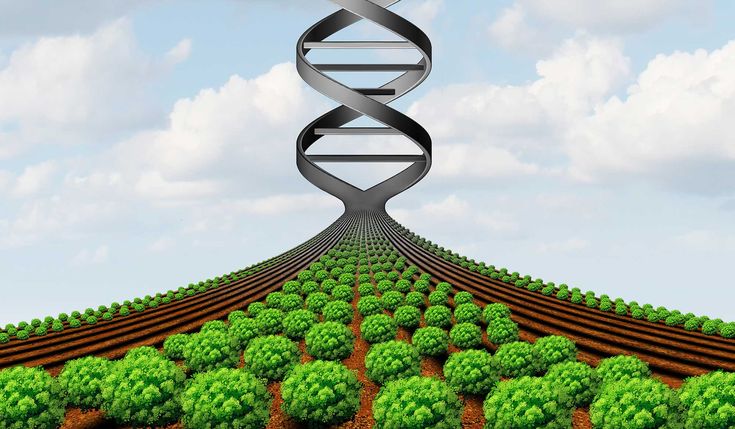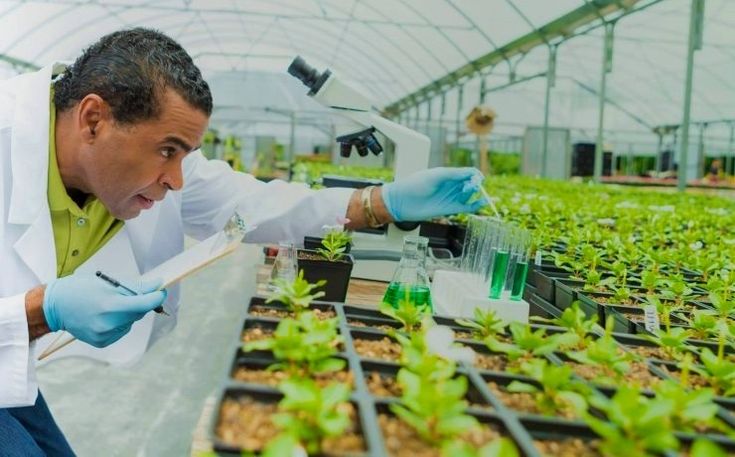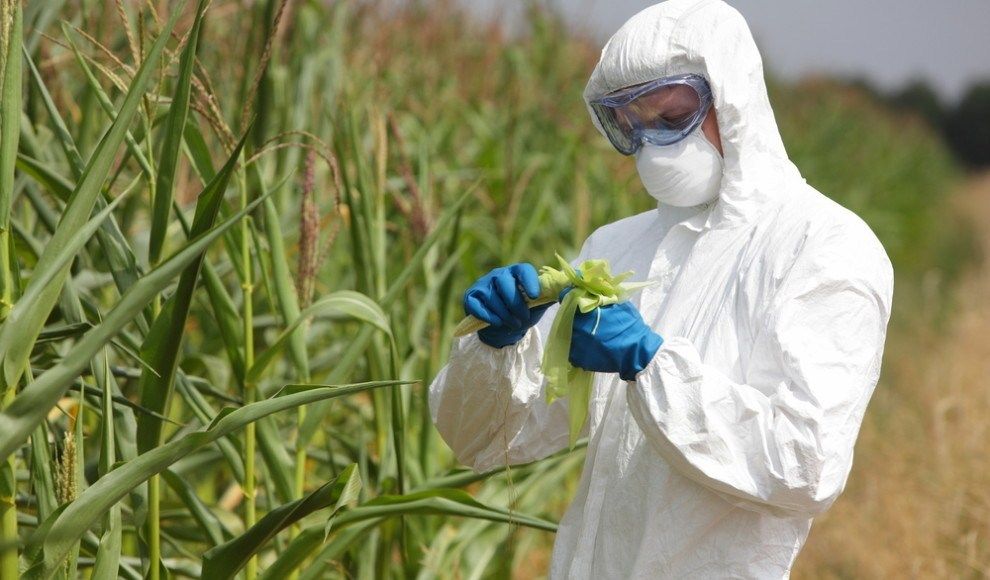The pace of innovation in biotechnology is nothing short of breathtaking. From groundbreaking gene editing tools like CRISPR to advancements in personalized medicine and synthetic biology, our capacity to manipulate life at its most fundamental level is expanding at an unprecedented rate. This scientific progress, while holding immense promise for treating diseases, enhancing human capabilities, and solving global challenges, simultaneously ignites a complex and often fervent array of ethical, social, and philosophical debates. These discussions are not merely academic exercises; they penetrate the very core of what it means to be human, the boundaries of intervention, and the equitable distribution of powerful new technologies. As biotechnology continues to evolve, society finds itself at a pivotal juncture, grappling with profound questions that demand careful consideration and public dialogue.
Biotechnology Revolution
To fully engage with the ethical dilemmas, it’s essential to first grasp the scope and implications of the modern biotechnology revolution. It’s a field that merges biology with technology, engineering life for specific purposes.
A. Foundations: From Recombinant DNA to Gene Editing
The roots of modern biotechnology stretch back decades, building on foundational discoveries that allowed scientists to directly manipulate genetic material.
- Recombinant DNA Technology (1970s): This breakthrough enabled scientists to cut and paste DNA sequences from different organisms, creating novel genetic combinations. It laid the groundwork for genetic engineering, allowing for the production of insulin, growth hormones, and other therapeutic proteins.
- Genomics and Sequencing (1990s-2000s): The Human Genome Project revolutionized our understanding of human biology by mapping the entire human genetic code. This ushered in an era of rapid and cost-effective DNA sequencing, providing unprecedented insights into genetic predispositions to disease.
- CRISPR-Cas9 (2012): This revolutionary gene-editing technology, often dubbed ‘molecular scissors,’ provided an unprecedented level of precision and ease in altering DNA. It allows scientists to target specific genes for deletion, insertion, or modification with remarkable accuracy, transforming the landscape of genetic manipulation. Its simplicity and effectiveness opened doors that were previously unimaginable.
B. Key Branches of Modern Biotechnology
Today, biotechnology is a vast and interdisciplinary field, encompassing several key areas that fuel ethical debates.
- Gene Therapy and Gene Editing: Focuses on treating or preventing disease by correcting genetic defects. This includes both somatic cell gene editing (affecting only the individual treated) and germline gene editing (affecting future generations).
- Personalized Medicine: Tailoring medical treatment to the individual characteristics of each patient, particularly their genetic profile. This allows for more effective drug therapies and disease prevention strategies.
- Synthetic Biology: Designing and constructing new biological parts, devices, and systems, or redesigning existing natural biological systems for useful purposes. This includes engineering microbes to produce biofuels, pharmaceuticals, or novel materials.
- Reproductive Technologies: Techniques such as in vitro fertilization (IVF), preimplantation genetic diagnosis (PGD), and potential future applications like artificial wombs or germline manipulation.
- Neurotechnology and Human Augmentation: Technologies that interact with the nervous system, including brain-computer interfaces (BCIs) for restoring lost function (e.g., controlling prosthetics) or potentially enhancing cognitive abilities.
- Bioremediation and Environmental Biotechnology: Using biological processes to solve environmental problems, such as cleaning up pollution, producing sustainable energy, or enhancing agricultural yields.
These advancements, while offering immense potential for good, simultaneously push the boundaries of what is technically possible, forcing society to confront profound ethical questions.
Core Ethical Debates Ignited by Biotechnology
The rapid progression in biotechnology has thrown open a Pandora’s box of complex ethical considerations, compelling societies worldwide to engage in critical dialogue about the boundaries of scientific intervention and human responsibility.
A. Gene Editing: Somatic vs. Germline Interventions
Gene editing is arguably the most contentious area, particularly the distinction between somatic and germline modifications.
- Somatic Cell Gene Editing: This involves altering genes in somatic (non-reproductive) cells of an individual to treat a disease. The changes are confined to the treated individual and are not passed on to their offspring.
- Ethical Concerns: While generally viewed as ethically more acceptable, concerns still exist regarding off-target edits (unintended changes to DNA), mosaicism (only some cells are edited), long-term side effects, and equitable access to expensive therapies.
- Germline Gene Editing: This involves altering genes in reproductive cells (sperm, egg) or early embryos. Crucially, these changes are heritable, meaning they would be passed down to future generations.
- Profound Ethical Concerns: This area sparks intense debate due to the permanent and inheritable nature of the changes. Key concerns include:
- Unforeseen Consequences: The long-term effects on future generations and the human gene pool are unknown and potentially irreversible.
- “Designer Babies” and Eugenics: The fear that germline editing could lead to attempts to “enhance” human traits beyond disease prevention, creating a slippery slope towards a new form of eugenics and exacerbating social inequalities.
- Consent of Future Generations: Ethical questions arise about making fundamental changes to the human genome without the consent of those who will inherit them.
- Current Global Stance: Most international scientific bodies and regulatory authorities currently advocate for a moratorium or prohibition on germline gene editing for reproductive purposes due to these profound risks.
- Profound Ethical Concerns: This area sparks intense debate due to the permanent and inheritable nature of the changes. Key concerns include:
B. Human Enhancement vs. Therapy
A central ethical dilemma revolves around the line between using biotechnology to treat diseases (therapy) and using it to enhance human capabilities beyond what is considered “normal.”
- Therapy: Generally seen as ethically permissible and desirable, aiming to restore health or function (e.g., gene therapy for cystic fibrosis, prosthetics for limb loss).
- Enhancement: Using biotech to improve physical, cognitive, or psychological traits beyond typical human abilities (e.g., gene editing for increased muscle mass, brain implants for enhanced memory, CRISPR to make humans more resistant to common diseases).
- Concerns:
- Fairness and Access: If only the wealthy can afford enhancements, this could create new forms of social stratification and genetic inequality, widening the gap between the “haves” and “have-nots.”
- Altering Human Nature: Concerns about fundamentally changing what it means to be human, leading to a loss of diversity or unintended consequences for human flourishing.
- “Slippery Slope”: The argument that allowing therapy could inevitably lead to widespread enhancement, with unknown societal implications.
- Coercion and Social Pressure: The potential for societal pressure on individuals to undergo enhancements to remain competitive in education or employment.
- Concerns:
C. Reproductive Technologies and “Playing God”
Advances in reproductive technologies raise questions about the sanctity of life, family structures, and human intervention in procreation.
- Preimplantation Genetic Diagnosis (PGD): Screening embryos created via IVF for genetic diseases before implantation.
- Concerns: While often used to avoid severe diseases, some worry about its potential misuse for selecting “desirable” traits (sex selection, non-medical traits), blurring the line into eugenics.
- Mitochondrial Replacement Therapy (MRT) / “Three-Parent Babies”: A technique to prevent mitochondrial diseases by using genetic material from three individuals.
- Concerns: Raises questions about genetic identity, lineage, and the extent to which human beings should manipulate the fundamental processes of reproduction.
- Artificial Wombs and Ectogenesis: The speculative possibility of developing fully functional artificial wombs raises profound questions about the nature of pregnancy, parenthood, and legal personhood.
D. Data Privacy and Genetic Information
The increasing ability to sequence and analyze genetic information presents significant challenges for privacy and data security.
- Genetic Discrimination: Concerns that genetic data could be used by employers, insurance companies, or even governments to discriminate against individuals based on their predispositions to certain conditions.
- Data Security: The highly sensitive nature of genetic data makes it a prime target for cyberattacks. Protecting this information from breaches and misuse is paramount.
- Familial Implications: An individual’s genetic data can reveal information about their relatives, raising questions about collective genetic privacy and consent for sharing such information.
- Commercialization of Genetic Data: Ethical concerns about companies profiting from genetic data without adequate compensation or control for the individuals whose data it is.
E. Animal Biotechnology and Welfare
Biotechnology is also applied to animals, raising ethical questions about animal welfare, environmental impact, and food safety.
- Genetically Modified Animals: Creating animals with enhanced traits (e.g., faster growth, disease resistance, increased milk production) for agricultural or pharmaceutical purposes.
- Concerns: Animal suffering, unintended ecological impacts if modified animals escape, and public acceptance of consuming such products.
- Cloning: The cloning of animals for research or reproductive purposes.
- Concerns: Animal welfare (high rates of abnormalities in cloned animals), ethical status of cloned animals, and the broader implications for biodiversity.
- Xenotransplantation: Using animal organs or tissues for transplantation into humans.
- Concerns: Risk of transmitting animal viruses to humans (zoonotic diseases), and the ethical implications of using animals as organ factories.
F. Dual-Use Dilemmas and Biosecurity
Many biotechnologies have “dual-use” potential, meaning they can be used for both beneficial (e.g., vaccine development) and harmful (e.g., biological weapons) purposes.
- Bioweapons: The risk that gene editing or synthetic biology could be used to create more virulent pathogens or novel biological weapons.
- Responsible Conduct of Research: The ethical obligation of scientists to consider the potential misuse of their research and to implement robust biosecurity measures to prevent accidental or intentional release of dangerous biological agents.
- Regulation and Oversight: The challenge of developing effective national and international regulations to govern dual-use research without stifling beneficial innovation.
Navigating the Ethical Landscape: Towards Responsible Innovation
Addressing these complex ethical debates requires a multi-faceted approach involving open dialogue, robust governance, and a commitment to societal well-being.
A. Fostering Public Engagement and Education
Crucial for navigating complex ethical landscapes is an informed public.
- Open Dialogue: Facilitating broad, inclusive public discussions about the potential benefits and risks of biotechnologies, involving diverse voices from science, ethics, religion, philosophy, law, and civil society.
- Scientific Literacy: Investing in public education to enhance understanding of fundamental biological concepts and the realities (and limitations) of biotechnological advancements, combating misinformation.
- Transparency: Scientists and developers must be transparent about their research, its goals, and its potential implications, building public trust.
B. Developing Robust Governance and Regulatory Frameworks
Effective oversight is essential to guide responsible innovation and mitigate risks.
- National and International Regulations: Establishing clear, adaptive, and internationally coordinated regulatory frameworks for new biotechnologies, particularly for gene editing and reproductive technologies. This includes setting clear red lines (e.g., against germline editing for reproduction).
- Ethical Review Boards: Strengthening the role of independent ethical review boards and institutional review boards (IRBs) to scrutinize research proposals and ensure adherence to ethical guidelines.
- Adaptive Governance: Recognizing that technology evolves rapidly, regulatory frameworks must be flexible and adaptive, capable of responding to new scientific breakthroughs without stifling innovation or becoming obsolete.
- Moratoria and Prohibition: In cases of high risk and profound ethical concern (e.g., germline editing for reproductive purposes), implementing temporary moratoria or outright prohibitions until further scientific consensus and societal dialogue can inform future policy.
C. Prioritizing Equity and Access
Ensuring that the benefits of biotechnology are equitably distributed is a significant ethical imperative.
- Affordability and Access: Addressing the high costs of advanced biotechnological therapies to prevent them from becoming exclusive to the wealthy, exacerbating health disparities. Exploring models for universal access or fair pricing.
- Global Collaboration: Ensuring that developing nations are not left behind in accessing these technologies and that research addresses global health challenges, not just those of wealthy nations.
- Preventing Genetic Discrimination: Enacting strong legal protections (like GINA in the US) to prevent discrimination based on genetic information in employment, insurance, and other areas.
D. Emphasizing Responsible Research and Innovation (RRI)
Scientists and institutions have a moral obligation to practice responsible innovation.
- Ethical Training for Scientists: Integrating ethics education into scientific training programs to equip researchers with the tools to identify and navigate ethical dilemmas.
- Risk Assessment: Proactively assessing the potential societal and environmental risks of new technologies, not just the scientific benefits.
- Stakeholder Engagement in Research: Involving diverse stakeholders in the research process itself, from setting research priorities to evaluating outcomes.
- Benefit-Risk Analysis: Conducting thorough analyses of the potential benefits versus the potential risks for each new application, moving beyond purely scientific feasibility.
E. Philosophical and Societal Reflection
Beyond regulation, society needs ongoing philosophical and cultural reflection.
- Defining “Human Nature”: Engaging in deep philosophical discussions about what constitutes human nature and whether certain biotechnological interventions might undermine fundamental human values or dignity.
- Societal Values: Reflecting on the core values that society wishes to uphold in the face of transformative technologies, such as equality, autonomy, justice, and responsibility.
- Long-term Vision: Considering the long-term societal impacts of widespread biotechnological adoption, including potential changes to social structures, relationships, and human identity.
The Future Trajectory of Biotech Ethics: Emerging Debates
As biotechnology continues its relentless march, new ethical frontiers will undoubtedly emerge, demanding foresight and proactive engagement.
A. Brain-Computer Interfaces (BCIs) and Neuro-Rights
The rapid progress in neurotechnology, particularly brain-computer interfaces (BCIs), is opening new ethical territories.
- Cognitive Augmentation: If BCIs can genuinely enhance memory, processing speed, or learning, ethical questions about fairness, access, and societal pressure for enhancement will intensify.
- Neuro-Privacy: The ability to read or even write to the brain raises profound questions about mental privacy, data security of neural information, and the potential for surveillance or manipulation of thoughts.
- Agency and Identity: Concerns about the blurring of lines between human thought and machine influence, and how BCIs might affect a person’s sense of self and autonomy.
- “Neuro-Rights”: Calls for new human rights specifically to protect the brain and its activity, such as the right to mental privacy, cognitive liberty, and protection from algorithmic bias affecting neural data.
B. Synthetic Biology and De Novo Life Creation
The ability to design and synthesize entire genomes, and potentially create novel life forms from scratch, will push existing ethical boundaries.
- Defining Life: What are the ethical implications of creating synthetic organisms that do not have a natural evolutionary history? How should such entities be classified and treated?
- Environmental Release: Risks associated with the accidental or intentional release of engineered organisms into the environment, and their potential impact on existing ecosystems and biodiversity.
- Biosecurity for De Novo Pathogens: The increased potential for creating dangerous pathogens through synthetic biology, raising urgent biosecurity and dual-use concerns.
C. Gene Drives and Ecosystem Engineering
Gene drive technology, which can rapidly spread a particular gene through a population (e.g., to eliminate disease-carrying mosquitoes or invasive species), offers powerful ecological intervention but carries significant ethical risks.
- Unintended Ecological Consequences: The risk of unforeseen and irreversible impacts on ecosystems, biodiversity, and non-target species.
- Irreversibility: Once released, a gene drive is extremely difficult to recall or stop, making the consequences potentially permanent.
- Environmental Sovereignty: Who decides when and where to deploy such powerful tools, especially across national borders, and what are the implications for environmental sovereignty?
D. Longevity Science and Anti-Aging Interventions
Advances in understanding aging processes and potential interventions to extend human lifespan or “reverse” aging will bring a new set of ethical dilemmas.
- Inequality and Access: If radical life extension therapies become available, who will have access to them, and what will be the societal impact of a deeply stratified population with vast differences in lifespan?
- Resource Allocation: What are the implications for social security, healthcare systems, and planetary resources if a significant portion of the population lives much longer?
- Meaning of Life and Death: Philosophical questions about the meaning of life, death, and human flourishing in a context of extended lifespans, and potential impacts on motivation, innovation, and generational turnover.
E. Human-Animal Chimeras and Organoids
The creation of human-animal chimeras (organisms containing cells from both humans and animals) and human organoids (miniature, organ-like structures grown from human stem cells) for research purposes also presents complex ethical considerations.
- Moral Status: What is the moral status of entities that contain human cells, especially if they develop human-like brain activity or traits?
- Organ Sourcing: While chimeras might offer a solution for organ shortages, what are the ethical boundaries of creating animals solely for human organ harvesting?
- Research Ethics: Balancing the potential for scientific breakthroughs (e.g., studying human disease, growing organs for transplant) with concerns about the ethical treatment and moral status of these novel biological entities.
Conclusion
The biotech revolution stands as one of humanity’s most potent forces for progress, offering tantalizing solutions to some of our most persistent challenges—from eradicating genetic diseases to engineering sustainable solutions. Yet, the very power of this science to redefine life, health, and human capabilities compels us to engage in a profound and ongoing societal reckoning. The ethical debates surrounding gene editing, human enhancement, reproductive technologies, and the future frontiers of synthetic biology and neurotechnology are not abstract; they are deeply personal and universally significant, shaping the very fabric of our future.
Navigating this intricate landscape demands more than just scientific prowess. It requires a collective commitment to open public dialogue, the establishment of robust and adaptive governance frameworks, a steadfast prioritization of equity and global access, and a deep, continuous philosophical reflection on the implications for human dignity and societal values. As our capacity to engineer life continues to advance, our responsibility to guide its ethical trajectory grows in equal measure. Society’s new debates in biotech ethics are not just about what we can do, but what we should do, defining the future of humanity itself.









